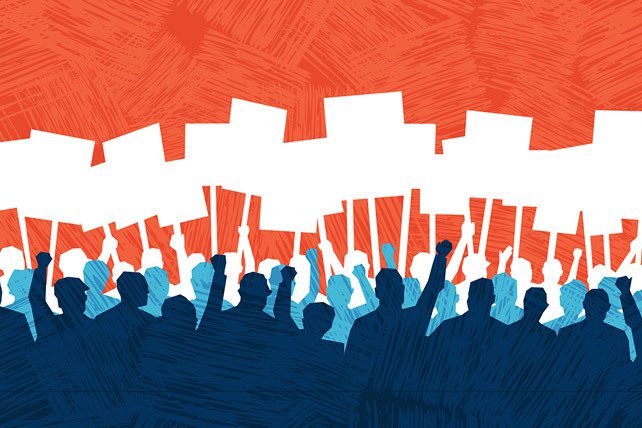Speaking of a Black pastor friend, Piper added, “And I have learned things in this conversation with my friend that I would have just never, ever been aware of. I have learned things about the sorrows of the Black community here in the Twin Cities that I would have never felt without this friendship.”
Similarly, in 2020, then-SBC president J.D. Greear said, “We need to say it clearly as a gospel issue: Black lives matter.”
However, others began to vocally characterize social justice efforts as necessarily opposed to the Christian faith, including pastor John MacArthur and a group of other evangelical leaders, who in 2018 released “The Statement on Social Justice & the Gospel,” which argued that “the charge of heresy can be legitimately brought against” the movement advocating for greater racial justice.
Over the course of the next few years, a slew of high-profile white police officer-involved killings of young Black men poured fuel onto the fire of raging debates about police brutality and social justice. In 2020, when a video began to circulate online of Minneapolis police officers kneeling on the neck of George Floyd, resulting in his death, cries for justice were as loud as ever.
At the same time, a parallel debate about the previously little-known method of legal examination called critical race theory (CRT) was beginning to make headlines.
The legal framework, which is based on the premise that race is a social construct used to oppress people of color, was originally met with some curiosity and a measure of acceptance.
In fact, the Southern Baptist Convention passed a resolution in 2019 stating that “critical race theory and intersectionality alone are insufficient to diagnose and redress the root causes of the social ills that they identify, which result from sin, yet these analytical tools can aid in evaluating a variety of human experiences.”
However, when Southern Baptists met again in 2021, an effort to rescind and condemn the resolution garnered considerable attention, even though it ultimately failed.
By that time, controversy around so-called “wokeness” loomed large. Derived from the phrase “stay woke,” which was long used in the Black community to encourage awareness of systemic injustice, “wokeness” was later appropriated by many conservatives, including evangelicals, as a stand-in word for Marxism and “radical left” ideologies.
Evangelical leaders increasingly began to frame “wokeness” as a “danger to the gospel.” Also in 2021, Denton Bible Church in Texas held a “Wokeness & the Gospel” Conference. In promoting the event, pastor Tommy Nelson said, “I have been in the ministry almost 50 years, and [wokeness] is the most insidious and dangerous and pervasive ideology that I have ever seen in all of my life, in all of my ministry. And it is dangerous to the Christian church as well as to our culture.”

